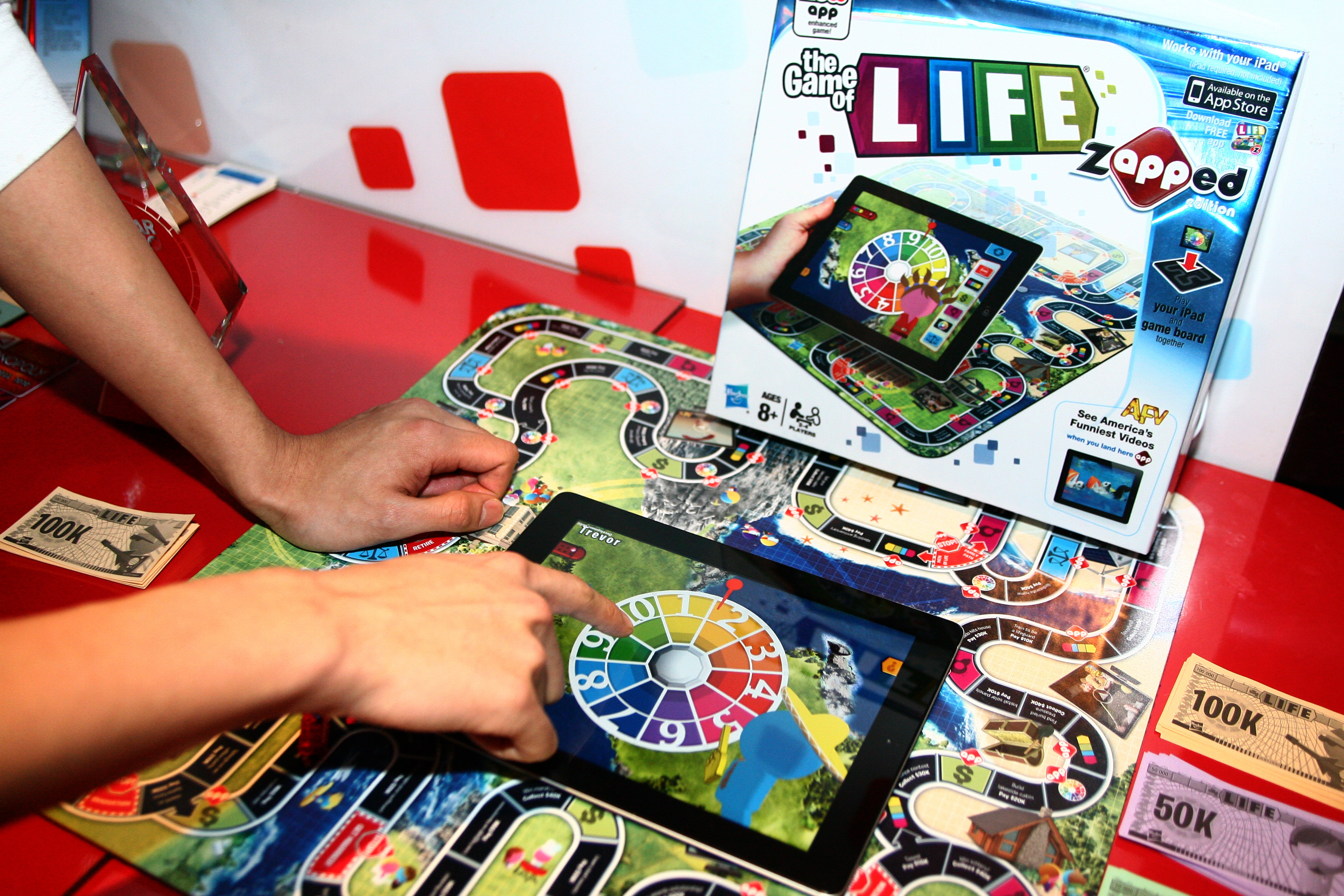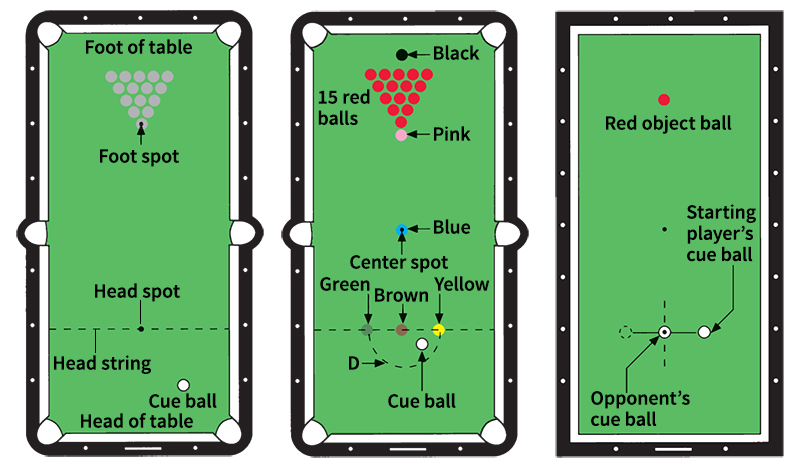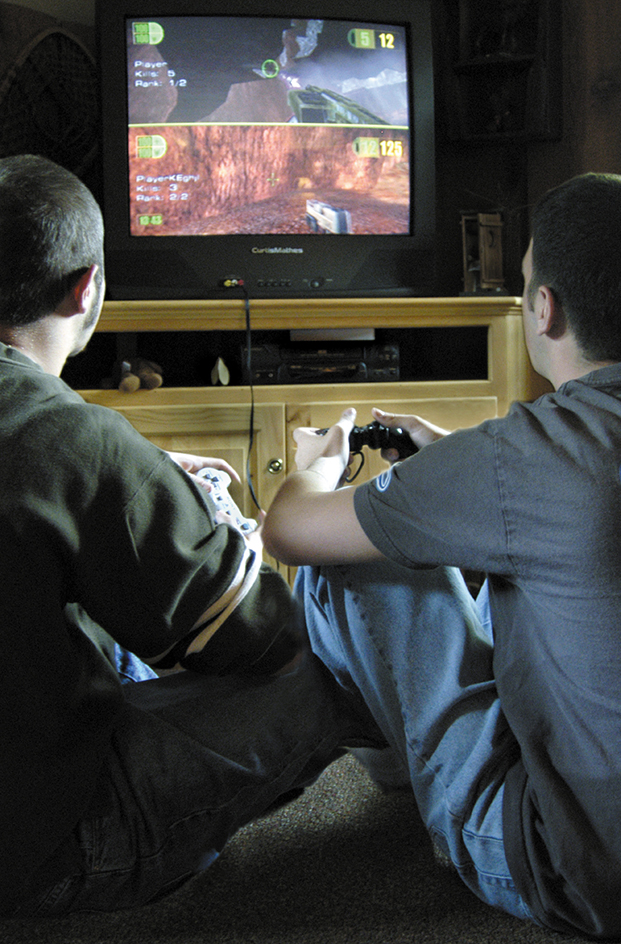Game is a mental or physical contest played according to rules. People have played games since prehistoric times. Games are usually played for fun, but they can also provide excitement, challenge, and relaxation. Many games also help develop mental, physical, and social skills.

To play a game, players may need a good memory, physical agility, or an understanding of probabilities. Games may also require skill at guessing what players are thinking, or an ability to visualize changing patterns of pieces on a board. Some games, such as the board game chess, are so challenging that people may spend much of their lives practicing and studying to improve their playing skills.
There are thousands of different games, and they can be classified in many ways. Games can be grouped according to the kind of people who usually play them, as in children’s games, or according to the number of players they require, as in solitaire games. Games may also be grouped according to the object of the game. For example, in cooperative games, players work together toward a common goal instead of competing to win.
Another category of games involves organized competition. These games are usually called sports, especially when they involve physical activity, as in baseball. But even board games such as chess may be thought of as a sport when played in front of spectators, or when the winners receive prizes or titles.
Some games are designed for educational purposes. Such games may teach children reading or arithmetic. They also may teach adults how to do a certain job well.
Games are most commonly grouped by the kind of equipment used to play them. The major game groups are (1) board games, (2) card games, (3) tile games, (4) target games, (5) dice games, (6) table games, (7) paper and pencil games, (8) electronic games, and (9) internet games.
Games that do not use any equipment, or that use equipment suitable only for one particular game, are often grouped according to where they are played. These types of games include party games, such as charades; TV game shows, such as Jeopardy; casino games, such as roulette; picnic games, such as sack racing; and street games, such as hopscotch.
Board games
probably have the greatest variety. Each year, hundreds of new board games appear on the market in the United States alone.
One of the oldest known board games was found at Ur, a city of ancient Sumer (now in Iraq). Archaeologists believe the board is about 4,500 years old. The game was probably a race game in which players threw dice and moved pieces around a track. Today, many board games are race games, including Parcheesi and backgammon.
Strategy board games have been played for thousands of years. Most strategy games require two players. The strategy game known as Go is one of the most difficult, though it has simple rules. Go originated more than 2,000 years ago in China, where it is called weiqi. Go is played on a board with 19 horizontal and 19 vertical lines. The object of the game is to capture territory by surrounding it with black and white pieces called “stones.” Today, professional go players earn large salaries in Japan and other Asian countries.
Other notable strategy board games include chess, shogi (Japanese chess), xiang qi (Chinese chess), a variety of different checkers games, and mancala. Mancala games are a popular group of ancient mathematical African and Asian games, such as the African game wari. They involve strategic moves of pebbles, seeds, or other small objects around pits scooped out of a board.
War games are board games that first gained wide popularity in the United States in the 1960’s. Such games offer players opportunities to re-create historical battles in great detail. Players see whether they can do as well as or better than the great military strategists of the past. There are also many war games involving battles set in the future both on earth and in space.
Other board game categories include trivia games, such as Trivial Pursuit; word games, such as Scrabble Crossword Game; games of logical deduction, such as Clue; and financial games, such as Monopoly. Some board games are based upon a movie, TV show, or fictional character.
Role-playing games make up a relatively new category of games. They may or may not involve a board. Dungeons & Dragons, invented in the 1970’s, became the first popular role-playing game. Since then, many new role-playing games have been published each year, and many have become popular.
In most role-playing games, one player is named the “gamemaster.” The other players each assume the role of a different character with special attributes, such as strength or magical ability. Players lead their characters through imaginary adventures, such as finding treasures in dungeons guarded by monsters. The gamemaster tells the players what happens to them through each stage of the adventure, such as entering a room or meeting a dragon.
Card games
probably rank next to board games as having the most variety. Card games have been played for hundreds of years.
Most card games use a standard 52-card deck, but some games use only part of a standard deck. Several games are played with a tarot deck, which contains many symbolic face cards. Many card games, such as Uno, use their own specially designed deck.
Most card games involve a combination of skill and luck. The most interesting card games, and the ones that remain popular the longest, are the games that require the greatest amount of skill. Card games requiring the most skill include poker, bridge, and the three-player German game Skat.
Tile games
use marked tiles made of wood, ivory, bone, stone, or plastic. Several tile games are played with dominoes. Mah-jongg is a Chinese game similar to the popular card game rummy, but it is played with tiles rather than with cards.
Target games
involve propelling objects toward a target. Children play many target games with marbles. They may shoot their marbles at those of an opponent, or at another target. In horseshoe pitching, players toss horseshoes at stakes driven into the ground. Darts and bowling are other popular target games.
Dice games
are games of chance. They are based on the random roll of objects called dice. Most dice games involve gambling. Popular dice games include Yahtzee and liar’s dice.
Table games
usually involve guiding or striking a ball or disk over a flat surface toward a goal. Billiards is one of the world’s most popular table games.

Paper and pencil
games developed from board games. One of the oldest and simplest types of paper and pencil games played today is tic-tac-toe.
Electronic games
are computer programs designed to entertain. They are played using a computer and a video display. There are four main categories of electronic games: (1) video games, (2) computer games, (3) handheld games, and (4) arcade games. People play video games on hardware systems designed for game playing and usually use television sets as a viewing screen. People play computer games on a personal computer or on such mobile computers as smartphones and tablets, and view them on the device’s monitor or screen. Handheld games are small and portable, and come with their own built-in display. Arcade games are large, stand-alone machines designed to play a single game.

Internet games
emerged with the popularity of the internet. By going online, a player can participate in many kinds of game activities.
The internet provides ways to play board games, card games, and electronic games. Many websites allow players to find partners and opponents, and to compete in chess, bridge, and many other traditional games. Some video games and computer games include an option to play them online, making it possible to play against opponents who live in other parts of the world. In one popular category, known as massively multi-player online role-playing games (MMORPG’s), thousands of people can take part in a game at one time. Each person controls a different character in a detailed, imaginary world.
